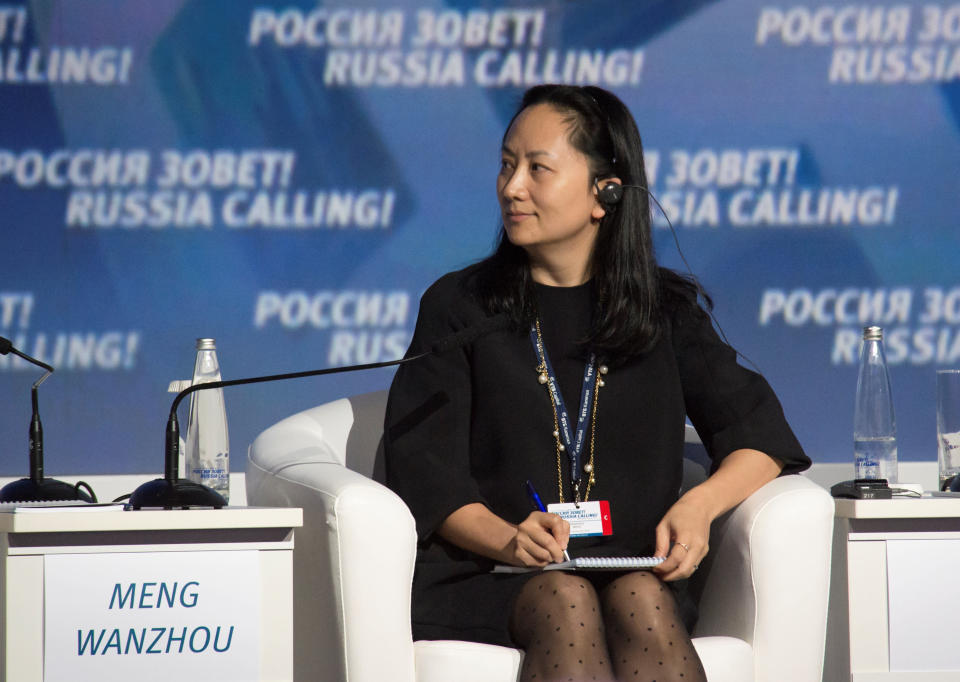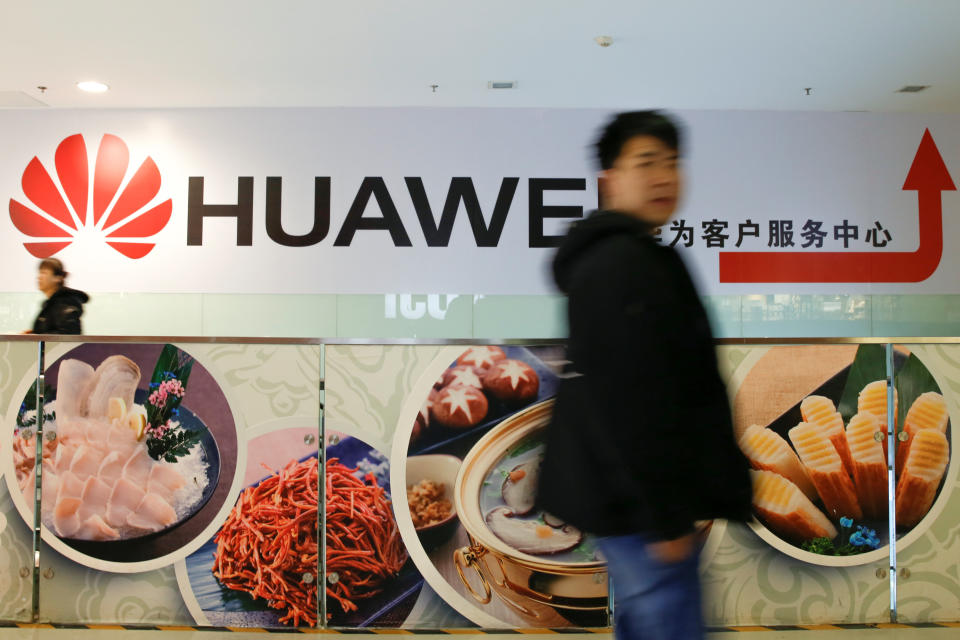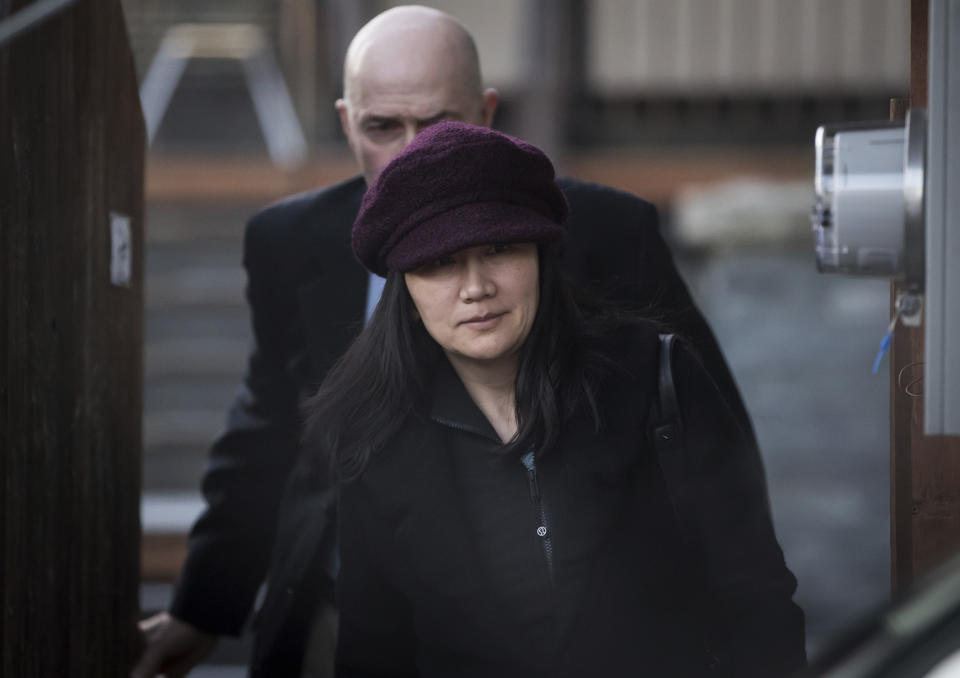How Huawei's CFO could use Trump's words to fight extradition to the US
The U.S. met a Canadian court deadline Wednesday by filing a request asking Canada to extradite Chinese telecom giant Huawei Technologies Co.’s CFO Meng Wanzhou, who has been held in Canada on a provisional warrant since she was arrested in Vancouver on December 1.
The request comes on the heels of separate charges filed by federal prosecutors in New York and Washington state against Huawei, unsealed Monday, accusing the company of stealing trade secrets from one of its U.S. business partners, and violating U.S. sanctions against Iran.

Among other considerations in Wanzhou’s case, the Canadian court will consider provisions of Canada’s Extradition Act and treaty with the U.S., which prohibit extradition requests compromised by political motivation. That opens the door for for the court to weigh comments made by President Donald Trump when asked about Meng’s arrest, Dr. Gary Botting, a barrister in Vancouver and Canadian extradition law expert told Yahoo Finance.
‘Canada cannot extradite somebody for political purposes’
Trump told Reuters, “Whatever’s good for this country, I would do,” when asked if he would intervene in the U.S. Justice Department’s case. “If I think it’s good for what will be certainly the largest trade deal ever made — which is a very important thing – what’s good for national security — I would certainly intervene if I thought it was necessary,” Trump reportedly said.

“Saying that he can use this as a bargaining chip in international relations, trade negotiations, for example, that might be something that impacts the extradition hearing in Canada,” Botting said. Botting expects Meng’s defense to rely on constitutional and treaty arguments for the bulk of its argument against extradition.
“You cannot extradite somebody for political purposes. That's a treaty provision that's a much larger and more important provision than whether or not this is criminal in Canada,” Botting said. “Why single her out as Chief Financial Officer? Why not handle it with a fine, especially when they're saying that she faces up to 30 years in jail?”
In its extradition filing, the U.S. is required to perfect what is called a Record of the Case, according to Botting.
“It has to be a certified Record the Case saying the evidence summarized in the document, witness by witness, in other words what each witnesses expected to say, along with information about the identity of Ms. Meng,” Botting said.
Once perfected, the matter heads to Canada’s Department of Justice, where the Justice Minister has 30 days to determine whether the Department will issue the authority to proceed with an extradition hearing. The Minister of Justice has the right to reject the U.S.’s Record of the Case as inadequate, and stop the proceeding.
2 questions before Canada’s Department of Justice
Bottling said there are two primary questions before the Department: Whether Canadian authorities have arrested the correct person identified in the warrant, and whether the crime alleged is also recognized as a criminal violation in Canada.

“All they are looking at is, is this the right person, and is this a criminal violation in Canada?” He said.
The authority to proceed may not be issued unless Canadian law recognizes a criminal offense analogous with the criminal offense charged in the U.S. indictment.
While Canada is not a party to U.S. sanctions against Iran, and therefore does not recognize a law exactly analogous to the crime the U.S. alleged against Meng, Botting said the underlying law of fraud, which is recognized by both countries, would likely act as enough of a common denominator to issue an authority to proceed.
If an authority to proceed is granted, it initiates court proceedings and allows the assigned judge in British Columbia to set an extradition hearing date and preliminary schedule.
Under Canadian law, the court is required to preserve a detainee’s Charter Rights, which are Canadian constitutional protections that guarantee Meng the right not to be deprived of fundamental freedoms.
“So the question is has [the extradition process] been done in a fair and just way?” Botting said.
An argument that would ‘trump all’
In addition to citing Trump’s statements, Botting said he anticipates the defense to make the additional, though less weighty claim, that Canada’s laws do not specifically provide for sanctions against Iran, as set forth under U.S. law.
Even if the U.S. introduces evidence showing that Huawei and Meng committed the crimes alleged, a successful argument by the defense that Meng’s constitutional rights were violated, or that the treaty was violated, would trump such evidence.
“If the extradition is for political purpose, that would trump all,” Botting said.
In a separate case, United States v. Shulman, Canada’s Supreme Court ruled that a prosecutor who publicly threatened a U.S. citizen sought for extradition under the extradition treaty with Canada was equivalent to a price on the alleged detainee’s head and therefore a violation of Canada’s Extradition Act.
The Meng matter is adjourned until March 8 to allow the Justice Minister time to determine whether to issue an Authority to Proceed.
Huawei has denied that the company committed any of the violations of U.S. law contained in the unsealed indictments. Meng’s lawyer has denied the charge that she committed fraud.
“If she were extradited you can be sure she would be held for a long time,” Botting said. “Now it could be they decide to go with a big fine.”
Alexis Keenan is a New York-based reporter for Yahoo Finance. She previously produced live news for CNN and is a former litigation attorney. Follow her on Twitter at @alexiskweed
More from Alexis:
Disabled San Diego residents sue over e-scooter ‘obstacle course’
How legalized cannabis changed Colorado in the past five years
Legal experts disagree on whether Trump can declare 'emergency' to build his wall

 Yahoo Finance
Yahoo Finance 